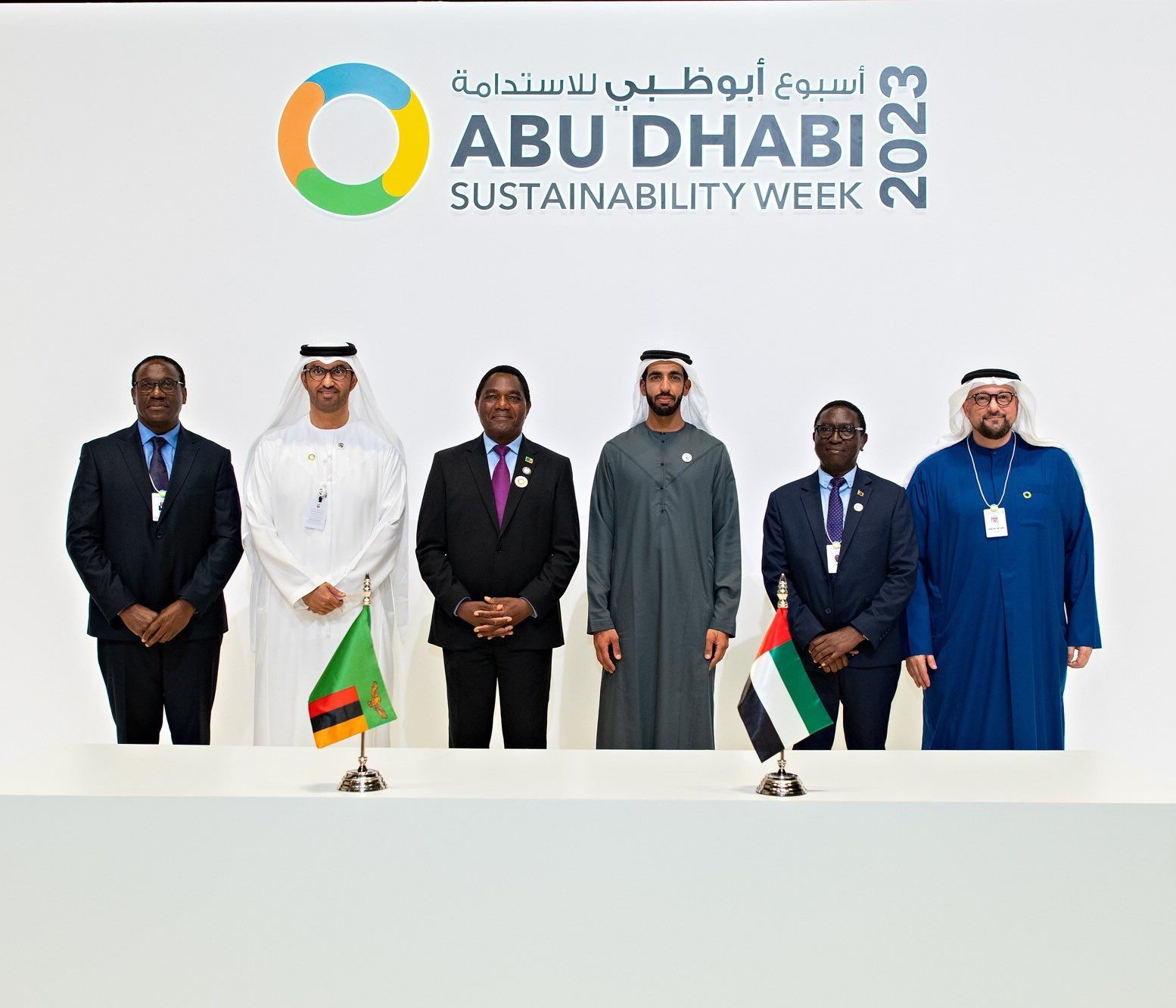$2 Billion Solar Power Deal Struck with UAE Energy Company
The Abu Dhabi renewable energy company, Masdar, has struck a deal with the Zambian government to develop 2GW of solar energy – estimated to be worth $2 billion – in the country. The joint venture, made in January, has been made with ZESCO, Zambia’s state-owned and largest power company.
President Hakainde Hichilema announced the joint development agreement in a statement on his Facebook page, describing the agreement as “not a loan but a capital injection in which the Zambian people, through ZESCO, will be partners in shareholding”.
The development of these large-scale solar farms will be rolled out in phases of 500MW at a time, and is expected to start in the immediate future.
This is only one of many direct foreign investment deals struck with the Zambian government in recent months. Following just a month after news of the UAE-Zambia deal, it was announced that the UK energy sector would also invest $2 billion in a green energy join ventures agreement. Then, just days ago, ZESCO signed a deal with China’s Integrated Clean Energy Power Company (CiEG) for renewable energy production worth $3.5 billion.
These foreign direct investments are an extremely welcome boost to Zambia’s current energy capacity. An estimated 30% of the population has access to energy. Not only will these investments widen that figure, it will also improve the quality of energy supply experiences by those who are connected.
Zambian and UAE energy delegates at the signing of the Masdar-ZESCO agreement (@HHichilema)
Zambia’s previous reliance on hydropower (estimated to be roughly 80% of Zambia’s energy output) has left the grid struggling following periods of disrupted rainfall and extreme weather. Especially damaging were the critically low water levels in the Kariba Dam some months ago, a resource that is central to the country’s hydropower generation.
It is therefore hard to overstate the importance of President Hichilema welcoming investment from Masdar, CiEG, and others. It shows that the government is looking to diversify its energy supply within the realm of renewables. This diversification will increase its resilience to climate fluctuations which can affect the production of hydropower. By doing so, it is looking forward, not only to a greener future, but also to a more economically prosperous one.
Zambia needs significantly more energy in order to develop its economic potential. Drastically increasing the country’s power is necessary for improving and mechanising the agricultural industry, which is currently rooted in small-scale and traditional farming methods. More generally, closing the energy poverty gap will increase employment opportunities and bolster GDP.
President Hichilema said in a statement on Twitter in January that the Masdar-ZESCO agreement was “unprecedented” and showed “strong investor confidence” in Zambia. The energy deals struck in the months after are proof of this, and point to a bright future for the country’s energy and economy.

